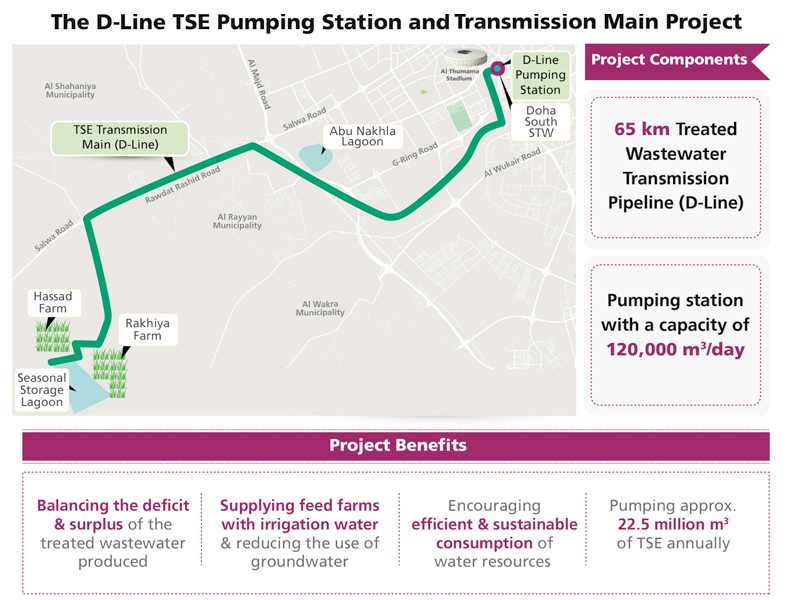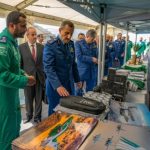Ashghal, the Public Works Authority in Doha, Qatar, is currently implementing the Treated Sewage Effluent Transmission Main and Pumping Station (D-Line) project. The project aims to transfer treated wastewater from the Doha South Sewage Treatment Works to the Seasonal Storage Lagoons in order to balance the deficit and surplus of treated sewage water and achieve its optimal use. Eng. Abdulrahman Mohammed Al Sulaiti, Head of Treatment Plants Projects at Ashghal, highlighted that this initiative is part of the Authority’s efforts to benefit from treated wastewater and promote efficient and sustainable water consumption practices. The project aligns with Qatar’s sustainable development objectives and the National Environment and Climate Change Strategy, which aims to reuse 100% of treated wastewater by 2030.
In line with its commitment to environmental preservation, Ashghal is focusing on reusing treated wastewater as part of its sustainability efforts. Eng. Al Sulaiti mentioned that the D-Line project will pump approximately 22.5 million cubic meters of treated wastewater annually. Additionally, Eng. Walid Al Ghoul, Project Manager at Ashghal’s Drainage Networks Projects Department, emphasized that the project will help store surplus treated wastewater during winter months for reuse during the summer when demand is high. This will supply feed farms with irrigation water, ultimately reducing the dependence on groundwater resources.
The Treated Sewage Effluent Transmission Main and Pumping Station (D-Line) project includes a 65 km-long transmission pipeline that runs underground, starting from the Doha South Sewage Treatment Works and passing through the main service route of Salwa Road. The pipeline will extend to the TSE Storage Lagoons where excess treated wastewater will be stored. The project also involves the construction of a pumping station with a capacity of 120,000 cubic meters per day, along with necessary mechanical, electrical, and related equipment works. The transmission pipelines are equipped with advanced automation technology to ensure efficient operation.
Furthermore, the D-Line project aims to supply irrigation water to the Ghadeer Feed Farms during the summer months, meeting the anticipated future demands of additional feed farms in the region. Ashghal’s efforts align with Qatar’s environmental sustainability goals outlined in the Third National Development Strategy 2024-2030, which emphasize the preservation of water resources for future generations. Qatar has made significant progress in water recycling, with 99.7% of sewage water treated in 2021 and utilized for irrigating public green spaces and other purposes.
Overall, the Treated Sewage Effluent Transmission Main and Pumping Station project reflects Qatar’s dedication to environmental stewardship and sustainable water management practices. By reusing treated wastewater and implementing advanced infrastructure, Ashghal is contributing to the country’s efforts to achieve water security and minimize the impact on natural resources. The project’s completion will not only benefit the environment but also support the agricultural sector by providing a reliable source of irrigation water for farms in the region. With continued investment in water recycling and conservation initiatives, Qatar is paving the way for a more sustainable and resilient future.










